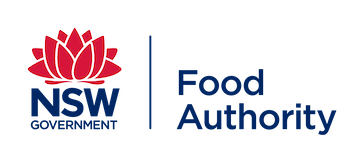Information for RTOs
Individuals who want to qualify as a Food Safety Supervisor (FSS) must achieve the required units of competency under the NSW FSS program.
The NSW FSS program is delivered through Registered Training Organisations (RTOs) approved by the Food Authority on an annual basis.
Approved RTOs train and assess students the required national units of competency, as well as supplementary mandatory key focus areas on managing high risk activities not already captured in the units of competency.
The NSW FSS certificate is designed to provide skills and knowledge for supervising food handling in retail and hospitality businesses. It does not provide all the skills required for supervising food handling in more regulated industries such as aged care or manufacturing.
FSS program strategy
The Food Authority is required to specify the nationally accredited units of competency and publish them on its website.
Approved RTOs delivering the NSW FSS must train and assess the following units of competency:
- Two hospitality units
- SITXFSA005 – Use hygienic practices for food safety, AND
- SITXFSA006 – Participate in safe food handling practices,
OR
- One retail unit: SIRRFSA001 – Handle food safely in a retail environment.
In addition to these units, approved RTOs must also incorporate key focus areas determined by the NSW Food Authority into the FSS program:
- Safe Egg Handling
- Allergen Management
- Cleaning and Sanitising Practices
- Food Act Offences.
These mandatory key focus areas are supplementary modules targeting high risk activities. They also provide additional consistency between the retail and hospitality skills sets.
The units of competency may include similar learning outcomes to the key focus areas. Where this is the case, the Food Authority expects all the content in the included key focus area module to be taught and assessed in addition to that unit of competency.
Previous units of competency
SITXFSA001 and SITXFSA002 are no longer valid individual units of competency but can continue to be trained and assessed as part of a qualification or course that has an extended transition period with Australian Skills Quality Authority (ASQA).
RTOs cannot train and assess old units of competency after the ASQA transition period ends.
Learning pathway
- Students seeking to achieve the NSW FSS qualification for the first time must enrol with an approved RTO
- The RTO trains and assesses the required units of competency and mandatory key focus areas
- On successful completion, the student receives a statement of attainment and an NSW FSS certificate.
FSS recertification training
NSW FSS certificates expire 5 years from the date of issue. Students seeking to recertify must renew a NSW FSS certificate that is due to expire, or has expired, within the immediately preceding 90 days.
Under this pathway, students receive recognition of prior learning for equivalent units of competency and undergo retraining and assessment on the key focus areas. They will then receive another statement of attainment for the units of competency and a NSW FSS certificate, which is valid for a further 5 years.
Keep in mind businesses need to replace an FSS within 30 operational days when an FSS leaves or changes roles to remain compliant.
Further information can be found in the Refresher Guidelines for RTOs, provided as part of the approval process.
RTO approval for the FSS Program
RTOs must be approved for the NSW FSS program by the Food Authority to issue NSW FSS certificates.
Approval includes access to the key focus areas resources and an account with the Biosecurity and Food Safety (BFS) Customer Portal, where RTOs can issue certificates, manage their approved trainers, and pay invoices.
An RTO approval lasts 12 months from the date of approval. Before your RTO approval expires, the Food Authority will send renewal correspondence.
RTOs seeking approval to deliver the NSW FSS must:
- read the RTO approval criteria (pdf, 110KB) and conditions of approval (pdf,108KB) forms, then
- submit an application form (FSS002) to the Food Authority with the relevant documentation
- operate in a manner compliant with the Food Act and Food Regulation in regards to the FSS program.
RTO Compliance
The RTO Management System supports the overarching objective of the FSS program by providing systems for delivering consistent, high quality training across RTOs. Our RTO Management System guide outlines key obligations and compliance information:
Approved RTOs and their trainers must comply with conditions of approval.
The Food Authority monitors, measures and reports on RTO compliance. Compliance audits are conducted regularly.
Training material verification
Training material accuracy is crucial to providing quality training to food handlers. To verify the accuracy of your training materials refer to the Verification of training material guidance.
Change of details or trainers
Approved RTOs can change their details by completing and submitting the RTO change of details form.
Approved RTOs can apply to add or remove a trainer in the BFS portal. New trainer requests will be processed in 4 weeks.
